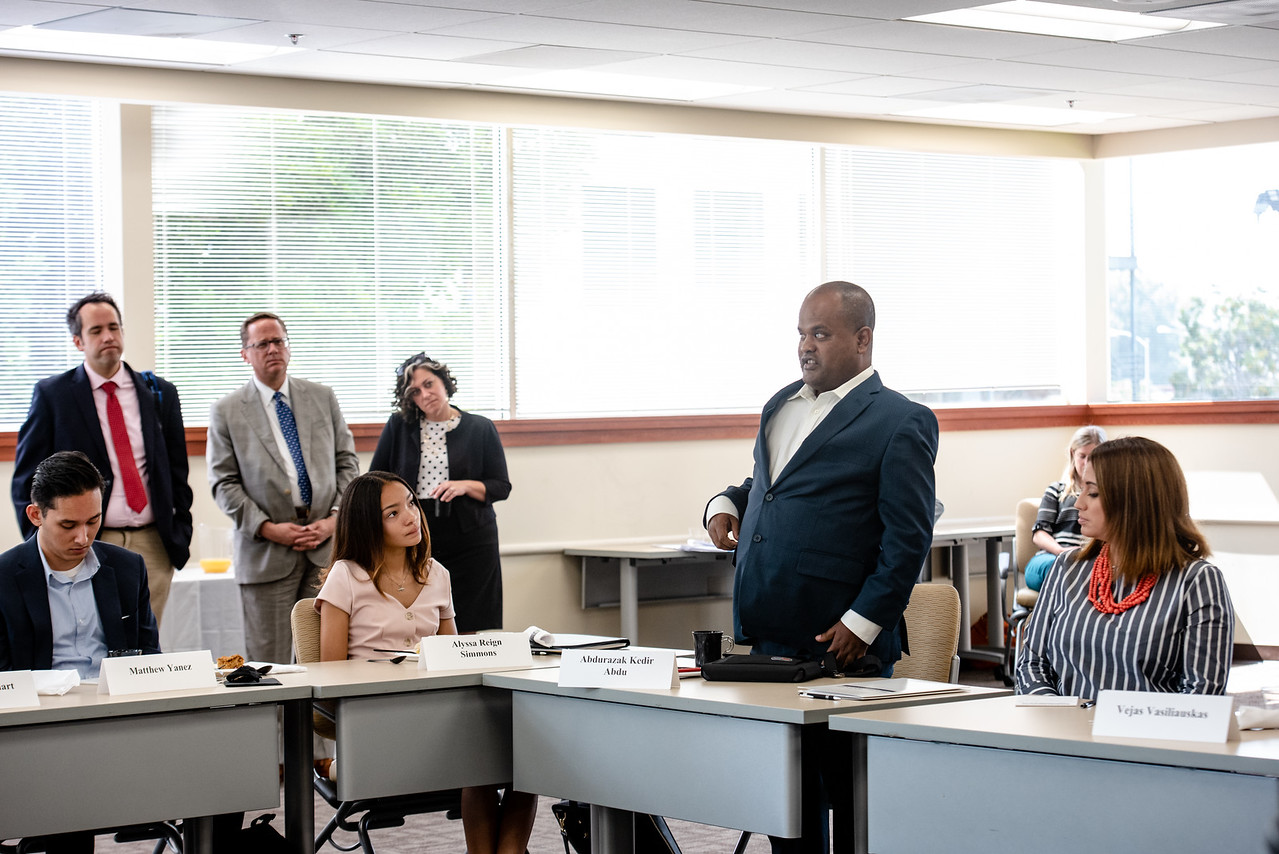
Welcome to The Coelho Center
- Mission, Areas of Focus, and Guiding Principles
- Meet our Founder
- Meet our Director
- Research Assistants/ Interns
Our Mission:
The Coelho Center collaborates with the disability community to cultivate leadership and advocate innovative approaches to advance the lives of people with disabilities.
Our Four Areas of Focus:
-
Convening & Developing Community
With an emphasis on centering disabled voices, we bring together thought leaders, advocates and policy makers to discuss and craft agendas that seek positive change for the disability community. We also develop opportunities and create space for new members to engage in these discussions.
-
Innovation, Media & Technology
Drawing from the knowledge of our community and celebration of our differences, we encourage innovative approaches to move toward full inclusion in society. In particular, The Coelho Center will focus on engaging with media and technology as important tools to improve participation and access.
-
Increasing the Pipeline
Currently, there is no organization in America that is creating a pipeline of lawyers with disabilities to populate the bar and bench and hold elected office. The Coelho Center works to bring attention and solutions to the barriers that exist for people with disabilities interested in entering the legal field, becoming public policy experts, and holding political office.
-
Campus-Wide Participation
While housed at Loyola Law School, The Coelho Center represents all the schools and colleges at Loyola Marymount University. The Coelho Center builds a scholarly community dedicated to the study of disability studies, fosters students and practitioners interested in working with the disability community, and provides training to enhance campus-wide efforts to improve a positive climate at LMU for people with disabilities.
Our Guiding Principles:
-
Nothing (About Us) Without Us
Drawing on a disability rights movement slogan originating in the 1990s, "nothing about us without us" means that no decisions about the disability community should be made without the participation of members from our community. Stated in short hand "nothing without us" acknowledges that all facets of policy decisions have an effect on the disability community. As such, our first guiding principle asks, "Does our work center disabled people in all levels of execution?"
-
Intersectionality
Intersectionality is a term coined by Kimberle Crenshaw in 1989. Crenshaw, a black feminist legal scholar, used the principle to describe interlocking oppressions that black women faced in the employment context noting that a black women's experiences cannot be understood by interogating blackness and womanhood separately but rather understanding how these identifies reinforce one another. Since then, "intesectionality" has been widely used to address multiple social justice issues including how ableism intersects with other oppressions. People with disabilities who experience oppression at multiple axis do not benefit when we only address ableism. As such, our second guiding principle asks, "Does our work address intersectional issues of oppression?"
-
Leadership by Disabled People of Color
Historically and even today, leadership in disability law, policy and academia is dominated by white professionals. Just as is the case in other professional areas, institutional racism and white privilege has create disadvantages for people of color to advance in leadership roles. In support of the important goals of equity and diversity, our third guiding principle asks, "Are we providing space for disabled people of color to lead?"